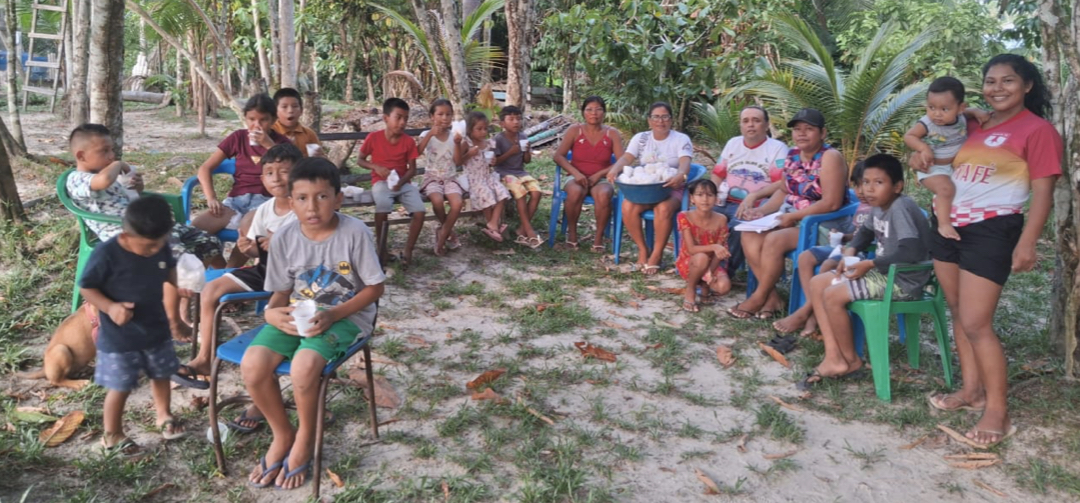Kokama and Kambeba-Omágua Indigenous Associations of Santo Antônio do Içá
Creating protective cultural sanctuaries for Indigenous youth to counter narco-trafficking influences in the vulnerable tri-border Amazon region
about AIKSAI
About the Associations
The Kokama and Kambeba-Omágua Indigenous Associations represent grassroots organizing at its most vital—emerging directly from communities determined to protect their children from narco-trafficking influences while preserving ancestral knowledge in one of the Amazon’s most vulnerable regions. Operating at the Brazil-Colombia-Peru border in the Upper Solimões area, these Indigenous-led organizations create cultural sanctuaries that serve as crucial alternatives to drug trafficking networks, providing spaces where traditional knowledge and contemporary skills flourish together.
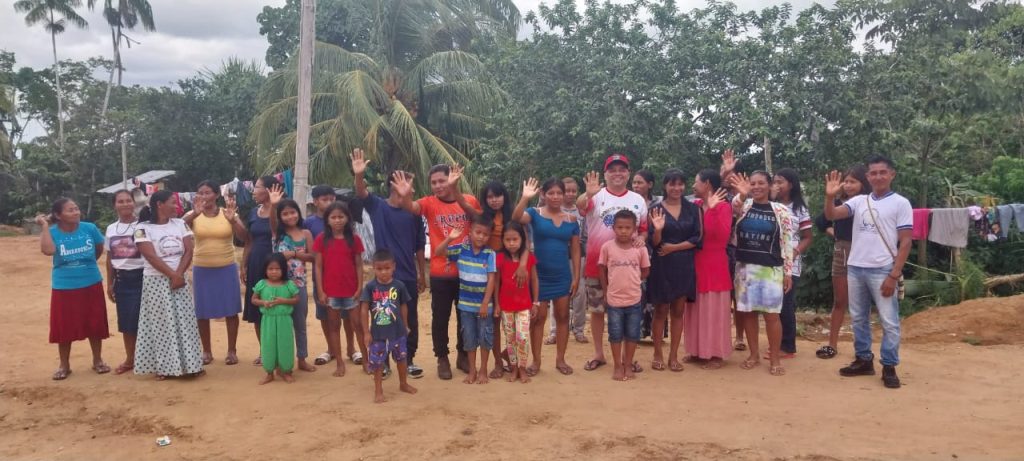
The Kokama people, with a population of 19,052 in Brazil (SIASI/SESAI, 2020), maintain significant communities along the Solimões River. Despite facing severe historical challenges through colonization and forced displacements that led many to temporarily suppress their Indigenous identity, they have experienced a strong cultural revitalization movement since the 1980s. As skilled fishers and agriculturists, they maintain traditional practices including the ajuri (collective work followed by communal meals) while adapting to contemporary challenges.
Similarly, the Kambeba people, with approximately 1,500 members in Brazil, have demonstrated remarkable resilience. According to Instituto Socioambiental, they “had ceased to identify as Indigenous due to violence and discrimination they faced from non-Indigenous people since the mid-18th century.” However, with the growth of the Indigenous movement from the 1980s and recognition of rights in the 1988 Constitution, they began reaffirming their identity. The Kambeba have since developed considerable capacity for political negotiation and liaison with other Indigenous groups and government agencies.
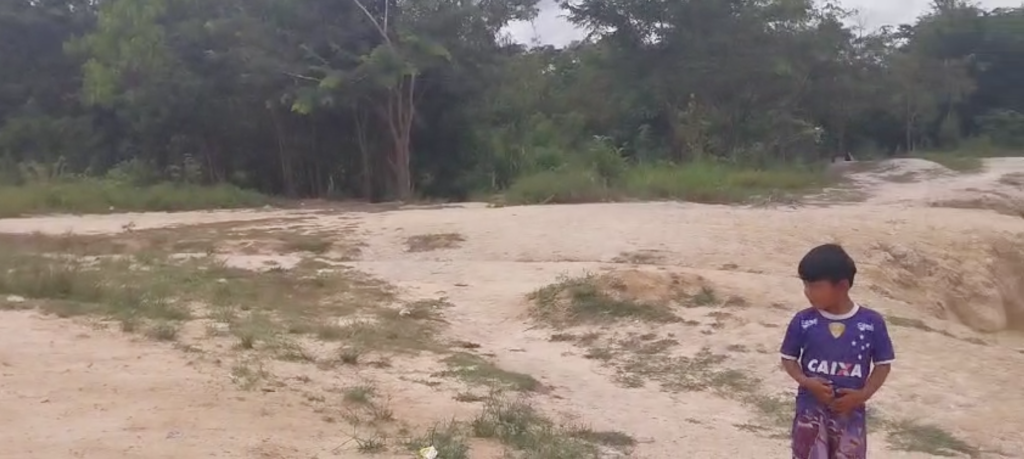
Working with extremely limited resources, these associations create lasting impact through community involvement and intergenerational knowledge transfer. Their programs include:
Cultural Arts Workshops: Indigenous handicrafts, music, and dance instruction preserving techniques across generations
Environmental Education: Elders sharing traditional ecological knowledge about forest and river ecosystems
Sports Programs: Combining traditional Indigenous games with contemporary athletics
Digital Documentation: Recording Indigenous music and creating videos to preserve cultural practices
Community Events: Regular performances and gatherings that strengthen community bonds
These initiatives reflect the broader history of Indigenous organization in the region, building on traditions of educational initiatives like those established by the Tikuna people while creating new spaces for cultural continuity.
Our partnership
About our partnership
Strengthening Cultural Sanctuaries in Vulnerable Territory
Our partnership with the Kokama and Kambeba-Omágua Indigenous Associations began by respecting their self-identified priorities. These communities themselves identified narco-trafficking as the primary threat to their youth and future, and they developed their own innovative approach to addressing this crisis in their critically vulnerable region. The geographic isolation of the Upper Solimões at the tri-border region has made their territory a corridor for drug trafficking routes that traverse rivers and forests, creating immediate dangers for community youth who face direct recruitment and threats from trafficking networks.
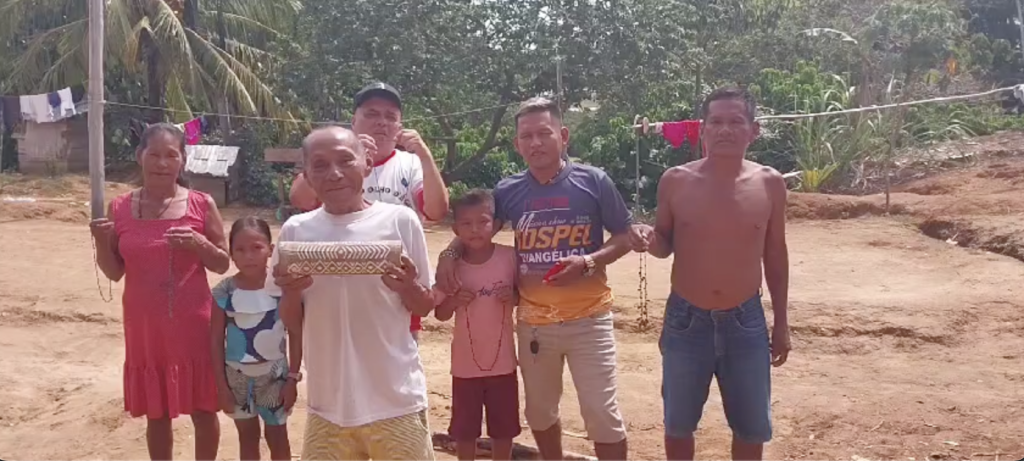
Rather than addressing these challenges through conventional prevention programs, these associations created cultural sanctuaries—spaces that actively counter narco-trafficking influences by providing meaningful alternatives where young people develop strong cultural identities and practical skills. This approach directly addresses the urgent threat of drug trafficking recruitment while preserving invaluable cultural knowledge.
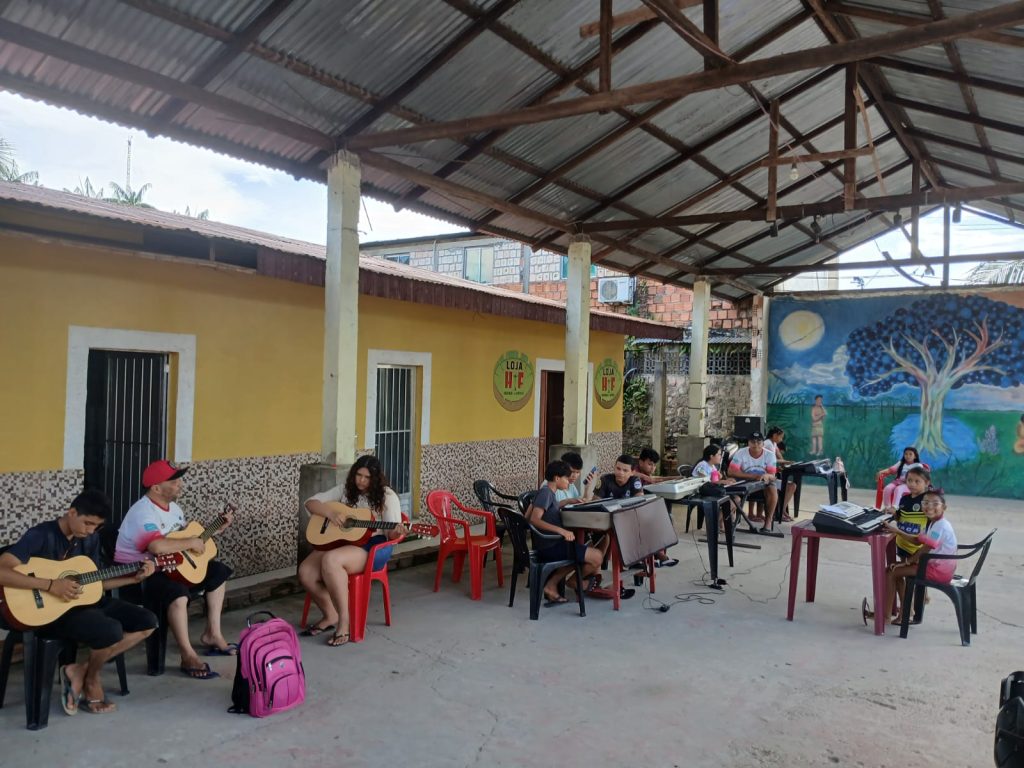
Azimuth World Foundation provided catalytic support for their Ancestral Rescue & Protection Program, which brings together children and teenagers for activities that weave traditional and contemporary knowledge. The program creates safe spaces where Indigenous youth can gather regularly to learn traditional songs, instruments, and dances, guided by community elders and teachers. Beyond music, these workshops become spaces for intergenerational knowledge transfer, language preservation, and community solidarity.
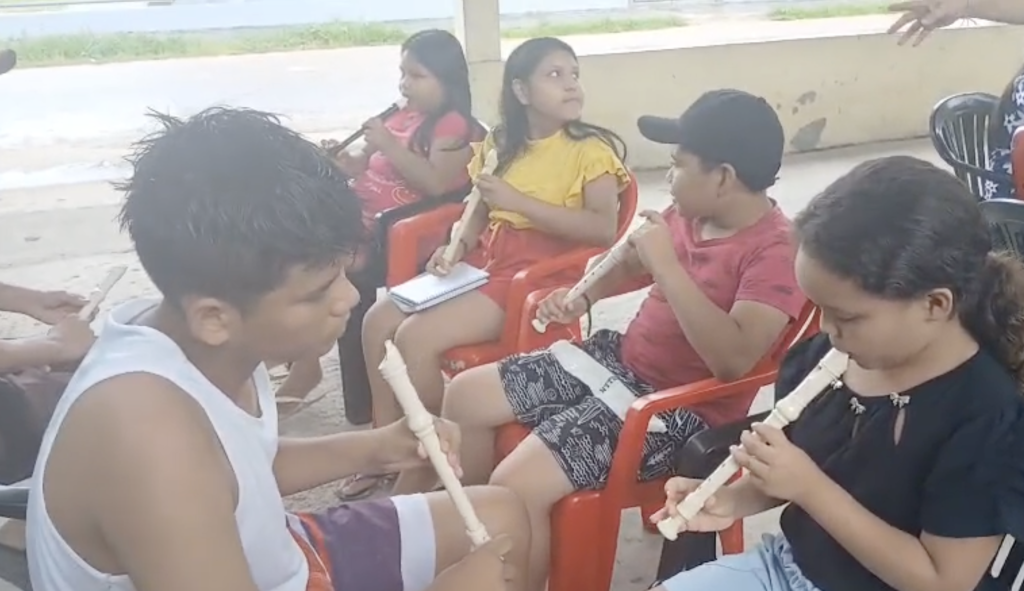
Building Networks for Community-Led Change
Our collaboration extends beyond financial support to include helping amplify the voices and experiences of these communities. In early 2025, we facilitated connections between the associations and documentary filmmakers working on a film project that uses the river as a central character to reveal both mystical aspects and harsh realities of the current situation in the Amazon. It also includes Indigenous perspectives on their profound relationship with the river, their territories, and their cultural practices. By elevating these authentic voices, the world gains access to irreplaceable wisdom about the Amazon ecosystem and witnesses the remarkable resilience these communities demonstrate in preserving their cultural heritage while navigating complex contemporary challenges. These first-person narratives reveal the harsh realities of environmental destruction and social pressures told by those who understand these dynamics most intimately.
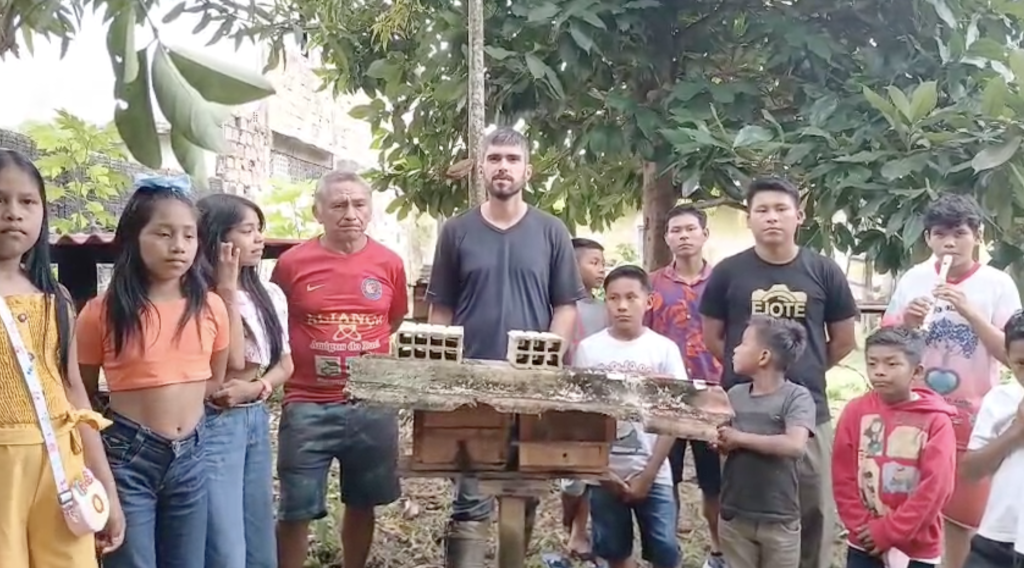
This partnership reflects our commitment to supporting Indigenous-led solutions that recognize the interconnection between protecting ancestral lands, preserving cultural knowledge, and creating healthy futures for youth. The Kokama and Kambeba-Omágua approach offers lessons in community-led protection that extends far beyond physical security to encompass cultural continuity and youth empowerment.
IMPACT
Impact
The Ancestral Rescue & Protection Program has created meaningful impact for Kokama, Kambeba, Omágua and Caboclo children and youth throughout the Upper Solimões region. Key achievements include:
Direct Narco-Trafficking Prevention: Created effective alternatives that reduce youth vulnerability to recruitment by drug trafficking networks operating across the tri-border region
Cultural Knowledge Transmission: Hundreds of children and youth now participate in regular sessions learning traditional arts, music, and environmental knowledge from community elders
Safe Spaces Creation: Established consistent meeting places in communities where children gather for constructive activities that counter harmful influences
Skill Development: Young people have acquired abilities in both traditional crafts and contemporary skills including music and sports
Community Strengthening: Regular performances and events have reinforced community bonds that help insulate youth from external pressures
Inter-village Network Building: Exchange programs allow participants to share experiences and knowledge across different communities, creating broader networks of cultural resilience and protection
The program demonstrates how cultural preservation serves as a powerful protective strategy against narco-trafficking. By combining ancestral knowledge with contemporary skill development, the associations are creating pathways for young people to remain connected to their heritage while building secure futures free from trafficking influences.
Updates
Updates
News from the ground on projects, initiatives and collaborations.
Support
View this post on Instagram
View this post on Instagram
Support
The Kokama, Kambeba and Omágua Indigenous Associations demonstrate how community-led initiatives create effective protection against narco-trafficking while preserving irreplaceable cultural heritage. Their work creating these dual-purpose sanctuaries represents effective action against to some of the most pressing challenges facing Indigenous communities in border regions.
Azimuth World Foundation is proud to support these associations. To become a direct supporter of their crucial grassroots work in the Upper Solimões region, you can reach out directly to the project manager:
Rômulo Omágua Kambeba:
+55 97 98428-8269 (WhatsApp)
By supporting these Indigenous-led associations, you contribute to a strategy that actively counters narco-trafficking by providing youth with meaningful cultural alternatives. Your support helps create protective spaces that shield vulnerable children from recruitment into trafficking networks while preserving irreplaceable cultural knowledge. The resilience these communities demonstrate offers powerful lessons in creating security and meaning in some of the most challenging environments.
— Connect with AIKSAI —
Kokama and Kambeba-Omágua Indigenous Associations of Santo Antônio do Içá
Creating protective cultural sanctuaries for Indigenous youth to counter narco-trafficking influences in the vulnerable tri-border Amazon region
about AIKSAI
About the Associations
The Kokama and Kambeba-Omágua Indigenous Associations represent grassroots organizing at its most vital—emerging directly from communities determined to protect their children from narco-trafficking influences while preserving ancestral knowledge in one of the Amazon’s most vulnerable regions. Operating at the Brazil-Colombia-Peru border in the Upper Solimões area, these Indigenous-led organizations create cultural sanctuaries that serve as crucial alternatives to drug trafficking networks, providing spaces where traditional knowledge and contemporary skills flourish together.

The Kokama people, with a population of 19,052 in Brazil (SIASI/SESAI, 2020), maintain significant communities along the Solimões River. Despite facing severe historical challenges through colonization and forced displacements that led many to temporarily suppress their Indigenous identity, they have experienced a strong cultural revitalization movement since the 1980s. As skilled fishers and agriculturists, they maintain traditional practices including the ajuri (collective work followed by communal meals) while adapting to contemporary challenges.
Similarly, the Kambeba people, with approximately 1,500 members in Brazil, have demonstrated remarkable resilience. According to Instituto Socioambiental, they “had ceased to identify as Indigenous due to violence and discrimination they faced from non-Indigenous people since the mid-18th century.” However, with the growth of the Indigenous movement from the 1980s and recognition of rights in the 1988 Constitution, they began reaffirming their identity. The Kambeba have since developed considerable capacity for political negotiation and liaison with other Indigenous groups and government agencies.

Working with extremely limited resources, these associations create lasting impact through community involvement and intergenerational knowledge transfer. Their programs include:
Cultural Arts Workshops: Indigenous handicrafts, music, and dance instruction preserving techniques across generations
Environmental Education: Elders sharing traditional ecological knowledge about forest and river ecosystems
Sports Programs: Combining traditional Indigenous games with contemporary athletics
Digital Documentation: Recording Indigenous music and creating videos to preserve cultural practices
Community Events: Regular performances and gatherings that strengthen community bonds
These initiatives reflect the broader history of Indigenous organization in the region, building on traditions of educational initiatives like those established by the Tikuna people while creating new spaces for cultural continuity.
Our partnership
About our partnership
Strengthening Cultural Sanctuaries in Vulnerable Territory
Our partnership with the Kokama and Kambeba-Omágua Indigenous Associations began by respecting their self-identified priorities. These communities themselves identified narco-trafficking as the primary threat to their youth and future, and they developed their own innovative approach to addressing this crisis in their critically vulnerable region. The geographic isolation of the Upper Solimões at the tri-border region has made their territory a corridor for drug trafficking routes that traverse rivers and forests, creating immediate dangers for community youth who face direct recruitment and threats from trafficking networks.

Rather than addressing these challenges through conventional prevention programs, these associations created cultural sanctuaries—spaces that actively counter narco-trafficking influences by providing meaningful alternatives where young people develop strong cultural identities and practical skills. This approach directly addresses the urgent threat of drug trafficking recruitment while preserving invaluable cultural knowledge.

Azimuth World Foundation provided catalytic support for their Ancestral Rescue & Protection Program, which brings together children and teenagers for activities that weave traditional and contemporary knowledge. The program creates safe spaces where Indigenous youth can gather regularly to learn traditional songs, instruments, and dances, guided by community elders and teachers. Beyond music, these workshops become spaces for intergenerational knowledge transfer, language preservation, and community solidarity.

Building Networks for Community-Led Change
Our collaboration extends beyond financial support to include helping amplify the voices and experiences of these communities. In early 2025, we facilitated connections between the associations and documentary filmmakers working on a film project that uses the river as a central character to reveal both mystical aspects and harsh realities of the current situation in the Amazon. It also includes Indigenous perspectives on their profound relationship with the river, their territories, and their cultural practices. By elevating these authentic voices, the world gains access to irreplaceable wisdom about the Amazon ecosystem and witnesses the remarkable resilience these communities demonstrate in preserving their cultural heritage while navigating complex contemporary challenges. These first-person narratives reveal the harsh realities of environmental destruction and social pressures told by those who understand these dynamics most intimately.

This partnership reflects our commitment to supporting Indigenous-led solutions that recognize the interconnection between protecting ancestral lands, preserving cultural knowledge, and creating healthy futures for youth. The Kokama and Kambeba-Omágua approach offers lessons in community-led protection that extends far beyond physical security to encompass cultural continuity and youth empowerment.
IMPACT
Impact
The Ancestral Rescue & Protection Program has created meaningful impact for Kokama, Kambeba, Omágua and Caboclo children and youth throughout the Upper Solimões region. Key achievements include:
Direct Narco-Trafficking Prevention: Created effective alternatives that reduce youth vulnerability to recruitment by drug trafficking networks operating across the tri-border region
Cultural Knowledge Transmission: Hundreds of children and youth now participate in regular sessions learning traditional arts, music, and environmental knowledge from community elders
Safe Spaces Creation: Established consistent meeting places in communities where children gather for constructive activities that counter harmful influences
Skill Development: Young people have acquired abilities in both traditional crafts and contemporary skills including music and sports
Community Strengthening: Regular performances and events have reinforced community bonds that help insulate youth from external pressures
Inter-village Network Building: Exchange programs allow participants to share experiences and knowledge across different communities, creating broader networks of cultural resilience and protection
The program demonstrates how cultural preservation serves as a powerful protective strategy against narco-trafficking. By combining ancestral knowledge with contemporary skill development, the associations are creating pathways for young people to remain connected to their heritage while building secure futures free from trafficking influences.
Updates
Updates
News from the ground on projects, initiatives and collaborations.
Support
View this post on Instagram
View this post on Instagram
Support
The Kokama, Kambeba and Omágua Indigenous Associations demonstrate how community-led initiatives create effective protection against narco-trafficking while preserving irreplaceable cultural heritage. Their work creating these dual-purpose sanctuaries represents effective action against to some of the most pressing challenges facing Indigenous communities in border regions.
Azimuth World Foundation is proud to support these associations. To become a direct supporter of their crucial grassroots work in the Upper Solimões region, you can reach out directly to the project manager:
Rômulo Omágua Kambeba:
+55 97 98428-8269 (WhatsApp)
By supporting these Indigenous-led associations, you contribute to a strategy that actively counters narco-trafficking by providing youth with meaningful cultural alternatives. Your support helps create protective spaces that shield vulnerable children from recruitment into trafficking networks while preserving irreplaceable cultural knowledge. The resilience these communities demonstrate offers powerful lessons in creating security and meaning in some of the most challenging environments.
— Connect with AIKSAI —


